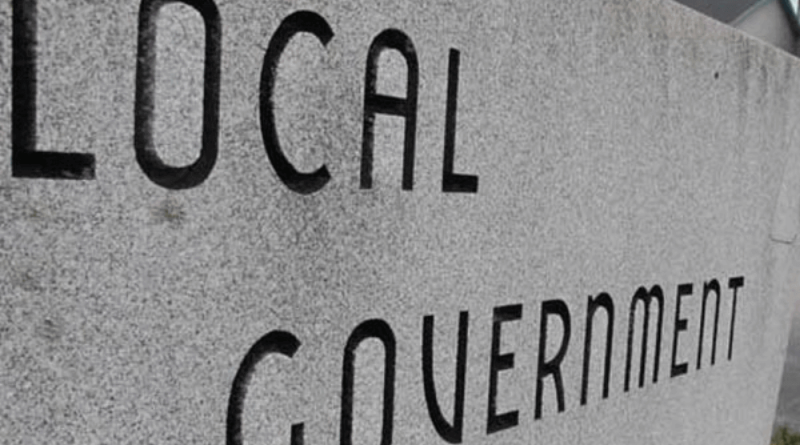Fiscal freedom still eludes LGs 16 months after Supreme Court’s ruling
…N4.5trn locked in states’ coffers
Sixteen months after the Supreme Court declared it unconstitutional for state governments to withhold local government funds, the country’s 774 local councils remain largely at the mercy of governors, stripped of fiscal independence, weakened in function, and silenced in governance.
In July 2024, Nigerians celebrated what was hailed as a landmark judgment: the Supreme Court’s pronouncement granting financial autonomy to local governments, declaring that state governors had no constitutional right to dissolve democratically elected councils or intercept their federal allocations.
It was supposed to be a turning point for grassroots governance, a chance to revive community-level development that had long suffered under state dominance. But sixteen months on, little has changed.
Across many states, council offices still depend on handouts from governors’ offices. Salaries are delayed. Projects are stalled. Council chairmen complain quietly, or risk removal. The ruling, it appears, has become another symbolic victory without substance.
Read also: FAAC allocation to FG, States, LGs drop to N2.1trn, as gross revenues dip by 16%
N4.5 trillion locked in the states
A detailed analysis of data from the Federation Account Allocation Committee (FAAC) shows that between July 2024 and June 2025, a total of N4.496 trillion was allocated to local government councils across Nigeria. This sum represents 24.87 percent of the N18.074 trillion shared among the three tiers of government within the same period.
Monthly disbursements were steady, N337.02 billion in July 2024, N343.70 billion in August, N306.53 billion in September, and N329.86 billion in October. The figure peaked in December with N402.55 billion, followed by N361.75 billion in January 2025, N434.57 billion in February, and N410.56 billion in March. Subsequent months recorded N387 billion in April, N406.63 billion in May, and N419.97 billion in June.
Yet, these billions, meant to fuel grassroots development, have continued to pass through state governments instead of going directly to local councils as the Supreme Court ordered.
Delays, disputes, and bureaucratic bottlenecks have become the new normal, dragging in the Central Bank of Nigeria (CBN), state treasuries, and local authorities in a complex web of financial control and constitutional ambiguity.
Governors still holding the purse strings
In defiance of the Supreme Court ruling, governors have retained firm control over these allocations, often citing constitutional provisions that establish the State Joint Local Government Account (SJLGA). The continued use of this account effectively keeps council funds under state custody, contradicting the spirit of the Supreme Court’s autonomy judgment.
Observers note that President Bola Tinubu, who initially championed the financial autonomy push, appears to have softened his stance. What was once projected as a bold move to deepen democracy at the grassroots is now caught in political compromise.
Some analysts suggest that Tinubu’s reluctance to enforce the ruling stems from political caution. “President Tinubu chickened out and is now being cowed by the governors who may have given subtle threats to wait for him in 2027,” one observer told BusinessDay.
Read also: Reps pass bill to empower LGs as federating units for second reading
A constitutional paradox
Legal experts argue that the apparent inaction by the federal government may, paradoxically, be an act of constitutional obedience.
Section 162 (5) and (6) of the 1999 Constitution (as amended) states that: “The amount standing to the credit of Local Government Councils in the Federation Account shall also be allocated to the State for the benefit of their Local Government Councils on such terms and in such manner as may be prescribed by the National Assembly.”
“Each State shall maintain a special account to be called the State Joint Local Government Account into which shall be paid all allocations to the Local Government Councils of the State from the Federation Account and from the Government of the State.”
This provision, lawyers say, directly contradicts the Supreme Court’s interpretation of local government fiscal independence.
Speaking recently on X (formerly Twitter), Joe Abah, lawyer and reform advocate, described the situation as contradiction.
“The Constitution confuses itself about what it wants to do with Local Government,” Abah wrote. “The recent Supreme Court ruling actually does violence to the part of the Constitution that sets up a Joint State Local Government Account. Bizarrely, by not implementing the ruling, the Federal Government is actually obeying the Constitution.”
In other words, Nigeria’s foundational law may be its own biggest obstacle to true local government autonomy.
Parliament’s attempt to fix the puzzle
Perhaps, recognising this contradiction, the House of Representatives last week took a step toward resolving it. Lawmakers passed for second reading “A Bill for an Act to Alter the Provisions of the Constitution of the Federal Republic of Nigeria, 1999 (as amended), to include Local Government Areas and Area Councils as Constituent Units of the Federation.”
Jointly sponsored by Speaker Abbas Tajudeen and Adewale Hameed (APC, Lagos), the bill seeks to constitutionally elevate local governments from mere administrative arms of the states to fully autonomous tiers of governance, with clear recognition as part of Nigeria’s federal structure.
Speaking while presenting the bill during plenary session, Hammed said, “This bill seeks to amend the constitution to explicitly recognise local government areas and area councils of the Federal Capital Territory as constituent units of the federation, alongside the federal and state governments. In doing so, we aim to affirm and protect the autonomy of local governments and area councils.”
The speaker added that local governance lies at the heart of true democracy. “The success of our democracy depends on how well governance and development reach the people at the grassroots,” Tajudeen said.
“Strengthening local government autonomy through constitutional recognition is not just an administrative reform; it is a democratic imperative.”
For millions of Nigerians, the outcome of these legal and political wranglings has tangible consequences. Local governments remain the closest tier of government to the people, responsible for basic services like waste management, health centres, and primary schools.

